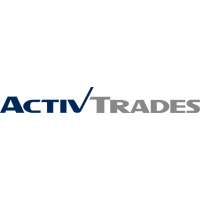GEICO’s current CEO, Tony Nicely, started there in 1961 as an 18-year old in the underwriting department. At the time of the 1975-76 crisis he was an assistant vice president, and he recalls a stormy time, but was grateful that Jack Byrne was at the helm to steer the ship to safety.
He said in an interview with Robert Miles (The Warren Buffett CEO, John Wiley and Sons) that Byrne saved “GEICO from complete destruction. There are few people, if any, who could have done it at the time. Jack was charismatic, convincing, and everything he had to be” (p29).
Tony Nicely said he learned a lot about insurance from Byrne “He understood the business well….he installed a whole new management process at GEICO, much of which still exists today…those of us who were survivors learned a tremendous amount from Jack – about the insurance business, about management and about a lot of other things.”
Byrne found the employees and business systems he inherited in isolated silos: the pricing guys did their thing, the claims people did theirs and the reserves were looked after by someone else. He was appalled by the number of times he heard “I don’t know and it’s not my job”. Plainly there needed to be a greater sense throughout the whole organisation of the overall objective – generating an acceptable profit on premiums received – so that everyone pulled in the same direction.
Byrne, with some force, pushed and pulled it into shape. He was very demanding and the turnaround was hard on the workforce “I started out as a young man, and in two to three years I became an old man” said Tony Nicely “Because of all the hours I had to put in, for a couple of years I was neither a father nor a husband. But it wasn’t the long hours or the lack of time off that changed me. It wasn’t even the stress of not knowing…whether or not it would still be there at the end of the day. What made me an old man was all the times that I had to look people in the eye…and say…I am sorry… but through no fault of your own, as of Monday you no longer have a job.” (The Warren Buffett CEO, p31)
Smaller, but still standing
As expected, losses were reported for 1976, but by 1977 GEICO was trumpeting its return to financial solvency and producing an operating profit. The volume of business was much reduced from 1975 – market share fell from 4% to under 2% – but now it consisted of policies with a good likelihood a generating a positive underwriting result.
Byrne was determined to return the company to its roots of being the low-cost provider. So keen was he on cost-cutting that he shared a secretary for many years. In terms of motivating extraordinary performance Buffett said of him that he was like the chicken farmer who rolls an ostrich egg into the chicken coup and says “Ladies this is what the competition is doing.”
In the same way that he interacted with the key person at other investee companies such as Kay Graham at Washington Post or at Chuck Higgins at See’s Candy, Buffett did not second-guess the person on the ground. He let them get on with the job without interference, only giving advice if expressly asked for. Buffett displayed complete trust, and these independently-minded executives greatly appreciated that.
One thing Buffett did impress on Byrne was the need to manage GEICO for the long run, definitely not for short term boost to volume or earnings. He would say things like manage it as though the business is the only one in which your family has a stake and you cannot sell it for 100 years.
Despite his reluctance to intervene he did get a buzz out of reading the key metrics weekly. GEICO sent figures every Tuesday on such matters as internet hits and those telephone inquiries resulting in a policy purchase.
Too much of a good thing can be wonderful
Buffett liked the developments he saw at GEICO so much that he added to BH’s original stake of $23.53m another $4.76m in 1979, by which time the preferred shares had been converted to common stock. In the following year BH bought another $18.85m taking the total invested to $47.14m for 7.2m shares. The average price paid over the four years was $6.55. BH’s then held 33% of the company’s equity.
He wrote of his excitement concerning GEICO’s future in his 1980 letter to Berkshire Hathaway shareholders “GEICO represents the best of all investment worlds – the coupling of a very important and very hard to duplicate business advantage with an extraordinary management whose skills in operations are matched by skills in capital allocation.”
The sharp-eyed will have picked up that I’ve stated previously that BH spent only $45.7m for its one-half stake, but now I’m saying that BH laid out over $47m. The reason for the difference is that GEICO, like many companies where Buffett had influence, introduced a policy of share repurchases.
On one occasion BH sold some of its GEICO shares back to the company. But on many other occasions it did nothing and watched as the shares……
………………To read the rest of this article, and more like it, subscribe to my premium newsletter Deep Value Shares – click here http://newsletters.advfn.com/deepvalueshares/subscribe-1


 Hot Features
Hot Features













